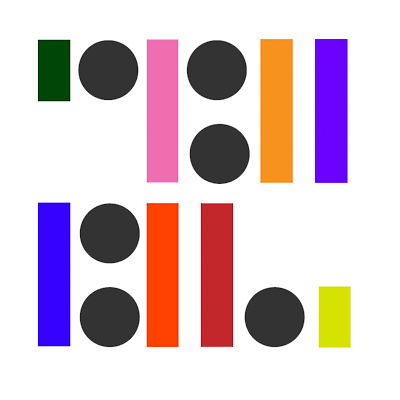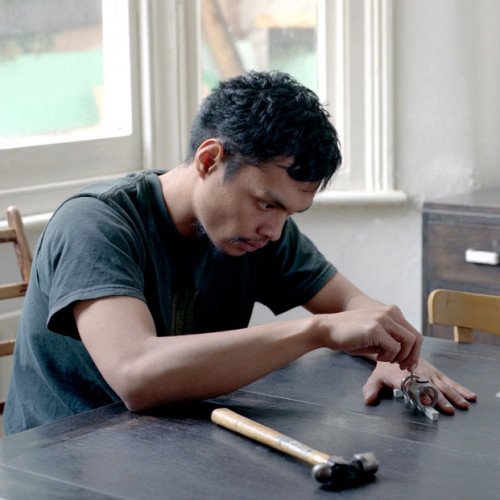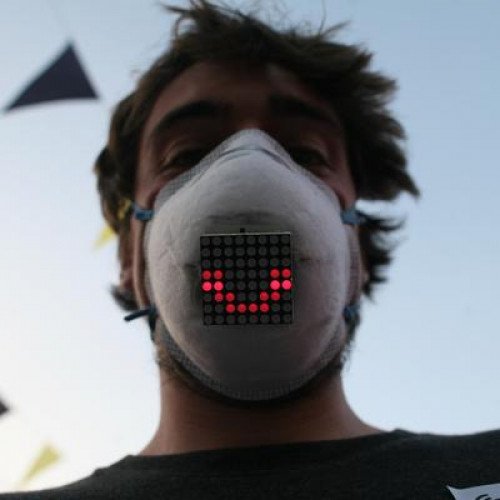made in china
CONNECTED DEVICES, FABRICATION, AND FUTURE
How can objects take on intelligences of their own? How can these intelligent objects in turn be used to create and critique how the future will be?
• 1. April - 26. April 2019
• Four weeks, full-time in Shanghai/Shenzhen, China
• Special two-week option in Shanghai available
• Up to 10 participants accepted
• Program held in English
• With support from Seeed in Shenzhen
Pricing
Artist / Student (Full Time)*
Professional*
course
description
In this workshop we will design fictions and future potentials rooted in a solid reality, taking us on a journey from the possible, through the plausible, preferable (or not) and into the future.
We are interested in using design as an exploratory tool, in order to depict the possibilities associated with new and future technologies. Through an entanglement of narratives we will paint a picture of a tomorrow, imagining objects, artefacts, and systems starting from the very small and peculiar and reaching towards a broader, bigger picture. In doing so we will critique the cultural and social implications of these aspirations, whilst reflecting heavily on the present status quo.
Throughout the workshop we will explore critical and speculative design processes, enabling us to develop narratives, and tangible, accessible
artefacts, experiences and environments with which to communicate and engage wider audiences with new possible futures.
The aim of this program is to enable a hands-on creative exploration of digital fabrication and Internet-of-Things connected devices, while gaining deeper insight into China's cultural surroundings from an inside perspective. What are the implications of a society that can manufacture any new product on demand? What can we learn from such an approach to society and to life?
Made In China will emphasise the learning and use of digital fabrication techniques to examine how technologically mediated interactions can produce emotional and empathetic responses. Once repurposed, they enable us to experience distant futures.
in this
course,
you will be
introduced to
Prototyping as iterative design and development process.
Design, development and fabrication of physical mechanisms.
Integration of multiple materials and media to create interactive objects.
CAD design for fabrication: use of Rhino to develop 3D models suitable for manufacture with 3D printers, CNC machines, and laser-cutters.
Digital fabrication tooling, e.g. 3D printing moulds, jigs, etc.
Basic programming using Arduino - motors, steppers, servos, sensors, LED strips, etc.
Use and integration of traditional manufacturing processes alongside new technologies in creation of new objects/components.
Experience with different materials, e.g. plastics, metals, rubbers, timber, etc. as necessary.
Presentation and communication of ideas and projects to an international audience.
who is this class for?
This workshop is geared toward anyone involved in creative projects (designers, makers, artists, musicians, performers etc.) that wish to begin incorporating fabricated objects, electronics, sensors, and connected devices into their work or practice. The course approaches these topics from a hands-on introductory level. No prior experience required.
meet the instructor
Sitraka Rakotoniaina
Artist and Designer
Born in Madagascar and raised in Paris, Sitraka currently lives and works in London. He is an Artist and Designer whose body of works ranges from fictional science experiments to speculative objects and devices. His work explores our relation to science and technology, encompassing cultural and social implications, as well as the beliefs and values intrinsic to their development. With a focus on the possibility of transforming individual sensory experiences, Sitraka often uses the human body as vehicle to trigger people’s imagination. He ‘crafts’ narratives through the conception and fabrication of objects and uses their ‘aesthetic’ qualities and theatricality as the foundations enabling a physical form of storytelling. Sitraka studied Industrial Design and Graphic Design/Multimedia in Paris, and graduated from the Design Interactions course at the Royal College of Art. He has worked as an independent Interaction Designer since 2006, with stints at Wieden and Kennedy in London and Phillips Design in Eindhoven. He currently lectures at Ravensbourne in London, in the post graduate department and at the School of the Art Institute of Chicago, in the Designed Objects pathway of the AIADO department. His work has been shown internationally including venues such as the Victoria and Albert Museum, Venice Architecture Biennale, Saint-Etienne design Biennial, the Art Center College of Design. And recognised through awards and publications including D&AD, we-make-money-not-art, Axis Magazine, See Yourself Sensing by Madeline Schwartzman, etc.
Andrew Friend
Artist and Designer
Andrew Friend is an artist and designer who’s work explores experience, and the relationship between people, landscape, and their desires. He is interested in the extraordinary, fantastic and desirable (or indeed undesirable) experiences and outcomes that may result from these interactions. Working through objects, performance and drawing his work aims to uncover, challenge and incite individuals in a quest away from their everyday, exploring the gulf between real and imagined in the individual pursuit towards a sublime. Andrew is co-founder of the international research platform and consultancy; ‘Very Very Far Away’, recipient of the Arte Laguna Prize (Venice IT), and teaches at Central Saint Martins and Ravensbourne colleges in London.
Simone Rebaudengo
Interaction Designer
In a future world of overpopulated, smog-filled cities and self-aware appliances, what will the everyday objects that frustrate and delight us—our gadgets—look like? Simone Rebaudengo, an Italian interaction designer based in Shanghai, isn’t just dreaming them up. He’s actually building the prototypes. He has been constantly speculating about those futures at Automato and, for the past four years, at frog, where he worked with Fortune 500 clients and small startups in bridging the gap between design research, product innovation and big delivery projects across Europe, Asia and Australia. His products and scenarios are believable enough to be real, but come from hypothetical and questionable futures. His research focuses on exploring the implications of living with networked and somewhat smart products that change, grow, and are intelligent enough to take their own decisions and show a point of view. He’s been teaching and presenting at CIID, SUPSI, China Academy of Fine Arts, Tedx, IxDA, SolidCon, Thingscon and Dconstruct. His works have been published internationally in Wired, Fastcompany, The Atlantic and Designboom. He has won numerous industry awards including two 2014 IXDA Interaction Awards for “Addicted Products”, and a 2015-2016 Internet of Things Award for Best Design Fiction for his “Ethical Things” project.




